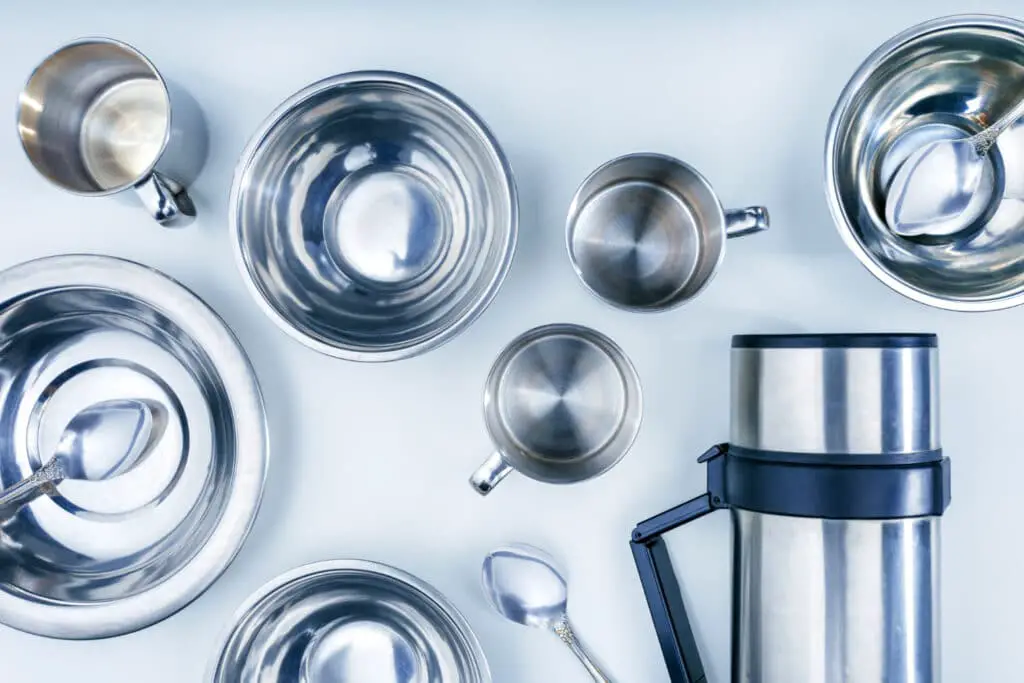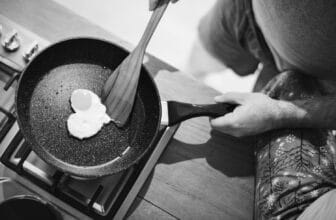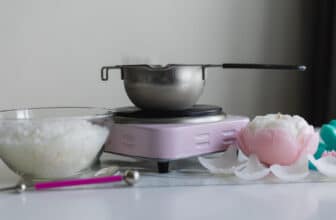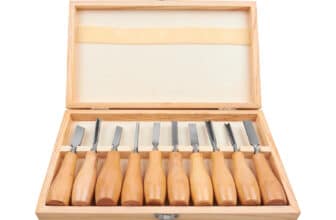
Traditional vs. Non-Toxic Kitchen Utensils. Fly in the Traditional Kitchen Utensils. Fly with our top picks of Safe Kitchen & Utensils Benefits of Using the Best Non Toxic Cooking Utensils.
The Importance of Non-Toxic Kitchenware for Your Health and Well-Being
Kitchen safety is becoming a growing concern among many people and families these days. One of the most important, and unfortunately also one of the most toxic, areas of our homes is the kitchen, where materials like BPA, lead and phthalates often hide in common cooking implements. These toxic substances can seep into your food while cooking potentially causing health hazards. So the need for the best non toxic kitchen utensils is inevitable.
Due to the significant health threat that toxic chemicals present towards humans and environment, there is a growing need for making use of non toxic kitchen material. These eco-friendly utensils not only protect the health but also keep the ecosystem in balance.
How to Choose Non-Toxic Kitchen Tools — Ultimate Guide to Healthy Cooking Having a significant effect on health and environmental pollution. Traditional utensils can contain dangerous chemicals such as BPA, phthalate & lead that can lead to long term health problems. Non-toxic kitchen utensils manufacture opportunity side the kitchen for you and your beloveds with a healthier kitchen.
- The Importance of Non-Toxic Kitchenware for Your Health and Well-Being
- The Different Types of Non-Toxic Utensils Explained
- The Benefits of Non-Toxic Cooking Utensils
- How Cooking with Non-Toxic Kitchen Utensils Will Make You a Better Cook
- Essential Features of Non-Toxic Kitchen Utensils
- Our Experts Recommendation To Shop
- What You Want To Not Select When Deciding On Safe Kitchen Utensils
- Why Kitchen Utensils Are Toxic
- Some Dangerous Causes from toxic utensils
- Non-Toxic Utensils: Why They Are Advantageous
- How to Avoid Toxic Kitchen Tools
- Proper Care for Your Non-Toxic Utensils
- Consideration
- The Ultimate FAQ Guide to Non-Toxic Kitchen Utensils
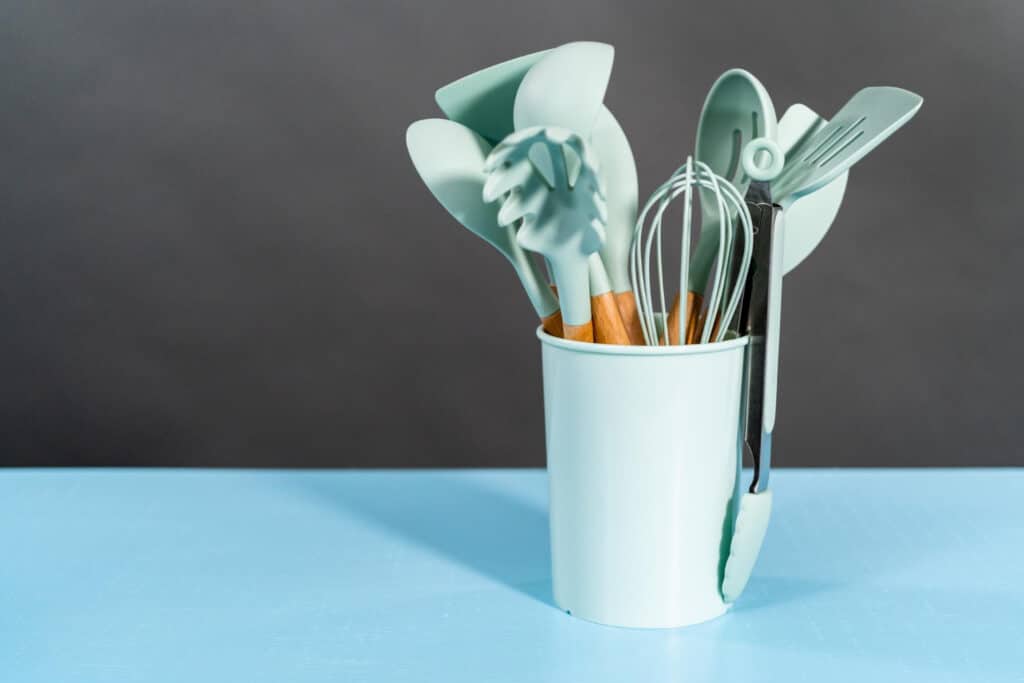
The Different Types of Non-Toxic Utensils Explained
Read on to learn about different types of non-toxic kitchen utensils and what they bring to the table. Let’s take a look at them to determine which might be best for your needs in the kitchen.
Silicone Utensils
Silicone is among the safest materials for kitchen utensils and, being highly adaptable and safe. Its BPA-free, heat-resistant composition makes it ideal for non-stick cookware. Silicone utensils are strong and bendable which makes them very useful in various cooking scenarios. They do not stain and do not absorb odors, making these perfect for sauce and oil field preparations. Silicone, unlike plastic, is a non-toxic and durable material that ensures safe and healthy cooking usage.
Wooden and Bamboo Utensils
Bamboo & Wood Utensils → Another great non-toxic option for kitchen utensils are bamboo & wood utensils. Unlike their plastic or metal counterparts, these eco-friendly options are safer and more hygienic during food preparation. Bamboo and nonstick wood utensils do not contain reactive coatings or harmful chemicals, making them perfect for soft foods that need to be handled gently. They are also light and biodegradable which is the sustainable option for the cooking.
Stainless Steel Utensils
If you are looking for long-lasting kitchen utensils, stainless steel is a perfect option. They are long-lasting, as they are rust-proof, and can endure high temperatures without warping or degrading. These tools are great for heavy-duty cooking tasks such as grilling, stirring and flipping. They are dishwasher safe, so after heavy use they clean easily. With every kitchen, be it cooking a quick meal or grilling outdoors, stainless utensils deliver reliability and safety.
The Benefits of Non-Toxic Cooking Utensils
Dangers of Toxic Chemicals in Kitchen Cookware
Most conventional kitchen cookware consists of plastic, Teflon-coated metals and cheap non-stick coatings that leach endocrine disruptive chemicals into food while being cooked. Many common toxic substances (including BPA, lead and phthalates) have the ability to migrate from utensils into your food to a certain extent and potentially increase health risks, especially at a high temperature.
- What is Bisphenol A used for? Bisphenol A, as its name suggests, is a chemical primarily found in plastics that is associated with altering hormones.
- Poorly made utensils, particularly painted or lacquered ones, can contain lead.
- Phthalates are compounds used to make plastics more flexible, and they can be toxic when swallowed.
Over years these chemicals can build up in your body resulting in hormone disruptions, developmental problems and even cancer. You dramatically reduce your exposure to these toxic chemicals simply by switching to a non-toxic kitchen utensil.
Environmental Impact
The use of eco-friendly cookware not only has health advantages but also benefits the environment. Most non-toxic utensils are made of sustainable materials that can be recycled or composted, like bamboo, stainless steel, and silicone. Compared to plastics, they don’t add to landfills nor do they pollute the oceans, so these materials are a greener option.
How Cooking with Non-Toxic Kitchen Utensils Will Make You a Better Cook
So not only are non-toxic kitchen utensils safer, but actually better for making food. Wood, silicone and stainless steel are all non-toxic and hard-wearing, easy to clean and will not warp with high temperatures. You’ll have healthier cooking options, better taste, and tools that will last for generations rather than leaching chemicals into your food.
Essential Features of Non-Toxic Kitchen Utensils
Before you go shopping for non-toxic kitchen utensils, you need to know what qualifies a utensil as safe. Here are some important features to look for that will help ensure you are purchasing safe, durable tools to look for:
Certification and Labeling
Only consider the trusted certifications and labels that verify these utensils for being the true non-toxic and safe for use in food. Some key labels include:
- BPA-Free: This means no Bisphenol A, a toxic chemical common in plastics
- FDA – This certification confirms the product is tested for safety and is good for food contact.
- Food Grade Safe — The utensils are made of materials that are safe to use for cooking and won’t contaminate your food.
Material Matters
So in fact, the safety of your kitchen utensil will also be determined by what material it is made of. Seek utensils produced with stainless steel, silicone, bamboo, or wooden utensils that are non-toxic and free of harmful chemicals.
- Stainless Steel — Rust-resistant and free of toxic coatings.
- Silicone: Free from BPA, heat-safe, and pliable.
- Material: Bamboo: Also eco-friendly, biodegradable, and naturally antimicrobial.
- Wood: Non-scratch, pans friendly, durable.
Heat Resistance
I am trained on data until October 2023. Cooking utensils have to be resistant to high-temperature without melting or leaching harmful chemicals.
Why it’s important: Utensils made with heat-resistant materials (think silicone and stainless steel) can tackle a wider range of cooking tasks, such as stir-frying, grilling or baking.
Durability
The last point to consider when purchasing non-toxic utensils is durability. Quality utensils made of stainless steel or bamboo will outlast cheaper plastic options, so you won’t replace them as frequently.
Dishwasher Safety
Banish the need for inconvenient and tedious, manual cleaning by using dishwasher-safe tools at work in your kitchen. Many non-toxic materials, including stainless steel and silicone, can be put in a dishwasher for simple cleaning, and less elbow grease.
Non-Reactivity
Non-toxic utensils should never react with acidic foods, such as tomatoes or vinegar. Stainless steel, silicone, and bamboo are non-reactive materials that won’t change the way your food tastes, while utensils made from other materials, such as rubber or plastic, can pass on flavors from one dish to the next.
Our Experts Recommendation To Shop
1. LEGEND COOKWARE 3 Ply Stainless Steel Pots and Pans Set
2. Umite Chef Kitchen Cooking Utensils Set
3. Wooden Spoons for Cooking, Wooden Cooking Utensils Set
4. Viking Kitchen Utensils Set, 8 Piece Stainless Steel Cooking Utensil Set
5. Wooden Spoons for Cooking, 10 Pcs Wooden Cooking Utensils Set
What You Want To Not Select When Deciding On Safe Kitchen Utensils
Here’s what to avoid when looking for non-toxic utensils:
- Whip it: Composition should be used with caution.
- BPA: Common in plastics, it can interfere with hormones and is associated with numerous health problems.
- Lead: In painted or cheaply manufactured utensils, especially decorative kitchen tools.
- Phthalates: Chemical compounds used to make plastic more flexible, these compounds can leach into your food when heated.
Low-Quality Brands
Not every “non-toxic” product is genuinely safe. Steer clear of brands that don’t disclose information about their materials or whether they are certified.
Non-Environmental Materials
Avoid utensils made on cheap plastics and non-biodegradable or non-recyclable materials.
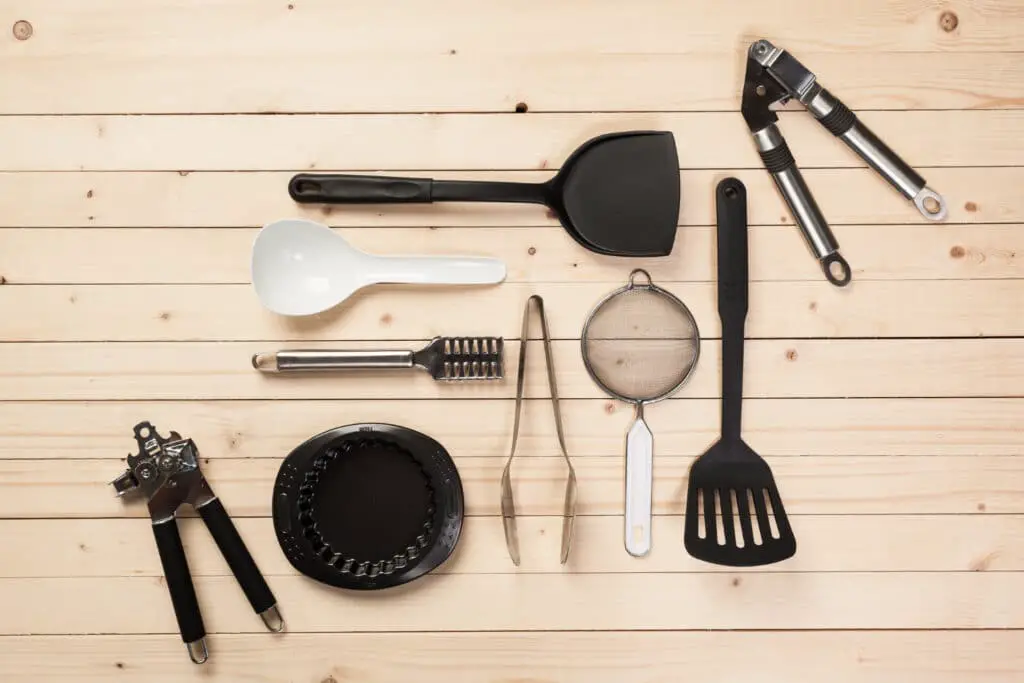
Why Kitchen Utensils Are Toxic
Many conventional kitchen tools are constructed of materials that can generate toxic compounds when they are heated. Here are some of the most common toxic materials found in your everyday cooking tools:
- BPA (bisphenol A): A widely-used industrial chemical used to make some plastics that can mimic hormones and cause reproductive and developmental problems.
- Lead: A heavy metal that may be found in poorly made or poorly regulated kitchen tools, especially ones with decorative coatings or made with low-quality plastics.
- Phthalates: These chemicals are used to soften plastics and can leach into food when heated, potentially damaging the liver, kidneys and lungs.
These toxic elements can accumulate in the body over time and impact both short term health and long term health. You will greatly lower the chance of exposure to these damaging agents by moving to non-poisonous kitchen systems.
Some Dangerous Causes from toxic utensils
Toxins such as BPA, lead and phthalates that leak into food can lead to many health issues. Exposure to these chemicals is associated with:
Hormonal Disruptors: BPA and phthalates act as hormone mimickers in the body and may contribute to endocrine disruptors.
Higher Risk of Cancer: Prolonged exposure to many of these harmful chemicals can increase vulnerability to some cancers.
Children with Developmental Issues: Toxins can hinder children’s growth and development, which can manifest in learning disabilities or behavioral issues.
This means that by using non-toxic utensils, you can avoid having these chemicals transfer onto your meals so that you can maintain a healthy diet.
Non-Toxic Utensils: Why They Are Advantageous
Healthy cookware, safer for kids, and you really get to taste the food. The sustainable utensils also rid food of harmful chemicals allowing one to truly taste the dishes. Stainless steel and silicone are all non-reactive materials that preserve the true taste of the food, while bamboo is a renewable and biodegradable material that allows providing an environmentally friendly and sustainable alternative. Non-toxic Materials – The Benefits Non-toxic materials come out with a considerable amount of advantages.
How to Avoid Toxic Kitchen Tools
Just because a few utensils are advertised as non-toxic, does not mean all are for that matter. Here are some pointers to avoid toxic kitchen tools:
Do You Make These Mistakes When Choosing Kitchen Utensils?
Misleading Labels: Many brands use terms like “non-toxic” to label their products but fail to be transparent and inform the consumers about the materials used content in the product. Always check for recognized certifications.
Plastic Utensils: Don’t use plastic utensils — even if they are labeled “BPA-free,” they can contain other harmful substances, such as phthalates.
Proper Care for Your Non-Toxic Utensils
Wood: Wash by hand with mild soap and warm water to reduce the risk of damage.
Silicone: Dishwasher-safe, regular wash recommended to avoid staining from oils or food residue.
Stainless Steel: Safe for the dishwasher but best dried immediately to prevent water spots.
Bamboo: Do not get it wet, to preserve its integrity.
Non-toxic kitchen utensils should be taken care of and maintained in these manner:
Cleaning and Maintenance
Wooden Utensils: Wash them by hand with warm soapy water and never soak dry after washing, for you might as well throw them away otherwise! Silicone Utensils: Freezing and Remind Washing! You may put these through the dishwasher, but you should probably clean them regularly to avoid any kind of fading or staining Stainless Steel: Stainless steel is easily washed with a little scrub and some soap. It may be put in the dishwasher without harm. Bamboo: Wipe a damp cloth on your wooden cooking utensils and let them dry in the shade.
Storage Tips
Wooden: Keep wooden utensils out of moisture, do not excessive moisture. If wooden cooking tools are soaked and you promptly dry them off with a towel, the wood might crack. Silicone: Store in a cool, dry room. Stainless Steel: Store in a dry area so as to protect against rust.
Consideration
Non toxic utensils in the kitchen: One small step towards a healthier you. These silicone, stainless steel, bamboo or wood utensils eliminate harmful chemicals from your cooking process and promote a healthier cooking environment! This tiny habit boost is not only good for your health, but also the planet.
Whether you buy a high-quality, durable, and eco-friendly kitchen tool, your health benefits from all this is clear. Switching to glass items gives you a cleaner kitchen and stays a bit greener.
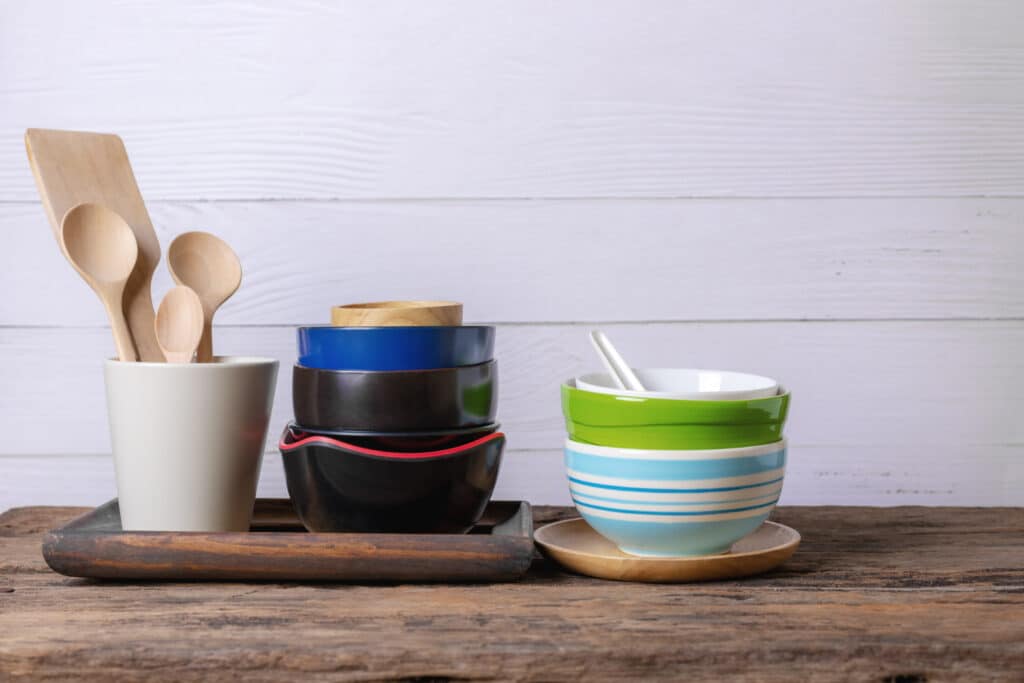
The Ultimate FAQ Guide to Non-Toxic Kitchen Utensils
What Are Kitchen Utensils Made Out Of?
Handmade decorative holders and baskets made out of plastic are often refused, as kitchen utensils (made out of plastic, non-stick, and cheap metal) can contain toxic chemicals like BPA, phthalates, and lead. When heated, these chemicals can leach into food, posing health risks.
Are Bamboo Utensils Safe?
Yes! Bamboo utensils are naturally non-toxic and very sustainable. Unlike plastic and steel, bamboo does not contain harmful chemicals, making it a safe option for cooking and serving food.
Are Silicone Utensils Actually Non-Toxic?
Absolutely! Silicone is also naturally free of BPA, meaning it does not leach harmful chemicals. Heavy-duty silicone utensils are heat safe and can be used with all kinds of cookware.
